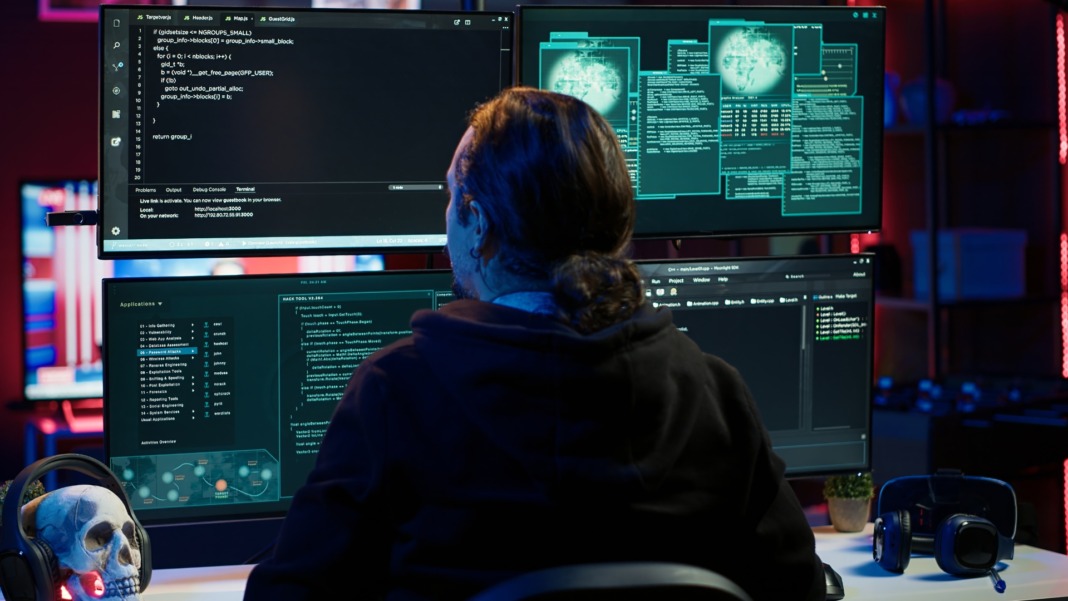Armis, a leading cyber exposure management and security company, has warned that artificial intelligence (AI) is becoming a powerful weapon in global cyberwarfare. The company is calling on organisations to bridge the gap between their current cybersecurity strategies and the proactive measures needed for future threats, as risks are expected to rise.
New research from Armis Labs’ third annual global Cyberwarfare report, Warfare Without Borders: AI’s Role in The New Age of Cyberwarfare, shows that AI-driven threats have increased over the past year. Nearly three-quarters (73%) of IT decision-makers globally expressed concern about nation-state actors using AI to carry out more sophisticated and targeted cyberattacks.
Nadir Izrael, Chief Technology Officer and Co-Founder of Armis, said, “AI is enabling nation-state actors to stealthily evolve their tactics to commit acts of cyberwarfare at any given moment. At the same time, threats are emerging at overwhelming rates from smaller nations and non-state actors leveraging AI to elevate to near-peer cyber threats. It is imperative that cybersecurity leaders shift their programs left of boom, enabling them to stop cyberattacks capable of crippling their operations before there’s any impact to their organisation.”
Organisations struggle to keep ahead of threats
According to the report, 87% of IT decision-makers are concerned about the impact of cyberwarfare on their organisations, a rise of 34% compared to last year. Furthermore, 64% agree that AI is reshaping the geopolitical landscape by allowing smaller nations and non-state actors to become significant cyber threats.
Despite recognising the need for a proactive approach, nearly three in five (58%) organisations admit they only respond to threats after an incident has already occurred. Although 81% of IT leaders said that moving towards a proactive cybersecurity stance is a priority for the coming year, many face significant challenges. Market consolidation, complicated regulatory frameworks, and gaps in outdated security systems are making it harder for organisations to stay ahead of emerging threats.
Many organisations are looking to AI-driven cybersecurity tools to strengthen their defences. However, half of the IT decision-makers surveyed acknowledged that their teams lack the expertise needed to implement and manage such technologies effectively.
Michael Freeman, Head of Threat Intelligence at Armis, said, “Current industry dynamics create an appealing environment for malicious actors to intensify their efforts through automated AI offensive driven technologies. Organisations that leverage proven AI security solutions will realise a greater impact in their ability to equip their teams with the resources and time they need to anticipate the tactics that could be used against them and harden their environments in response. Embracing a more proactive approach to threats has never been more important, and closing that divide between intention and ample preparation is within reach thanks to significant advancements in cyber exposure management.”
Rising fears of large-scale cyber conflict
The findings also revealed that 85% of IT decision-makers believe offensive techniques frequently bypass their current security tools. Confidence in national cybersecurity remains low, with only 53% believing their government can adequately defend its citizens and organisations from cyberwarfare. Just 33% strongly believe that their own organisation is ready to handle a cyberwarfare incident and its related threats.
Across the world, Russia and China were identified as the most prominent state-sponsored threats, each cited by 73% of respondents, followed by North Korea at 40%.
Alarmingly, 72% of IT leaders believe that the cyber capabilities of nation-state actors could trigger a full-scale cyberwar, potentially causing serious damage to critical global infrastructure.
There is also growing concern about the targeting of institutions that represent free press and independent thought. Three-quarters (75%) of IT decision-makers now believe that such institutions will increasingly be targeted by cyberwarfare attacks, a steep rise from 42% reported last year.
The 2025 Armis Cyberwarfare Report is based on a study involving over 1,800 global IT decision-makers and proprietary research from Armis Labs.





